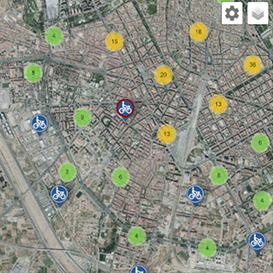Genode Labs
Where fantasy creates a new reality

Norman Feske co-founded Genode Labs in 2008 together with fellow Genode architect Christian Helmuth. “In 2003,” he recalls, “we formed a vague idea of a new operating-system technology designed and implemented from the ground up with the vision of a truly trustworthy and resilient OS.” In 2006 they created a first prototype at university. “It blew our minds!” Norman reveals. “Once we saw its enormous potential, we could not unsee it. We just had to bring those ideas to the real world. Hence, in 2008, we formed the company Genode Labs in our hometown Dresden in Germany.” A few months later, Genode was publicly announced as an open-source project. “We went on with combining our completely new system structure with microkernels, capability-based security, sandboxed device drivers and virtual machines. Over the past decade, it has steadily evolved from the once obscure research prototype to a product that scales from embedded systems to commodity PC hardware.”
The root of the problem
Committed to the open-source community and our customers alike, the Genode Labs business model combines consulting with dual licensing. “Our starting point was a technological vision formed over several years prior to starting the company. We observed that all popular commodity operating systems rest on assumptions that are no longer valid. Their foundation was laid decades ago, at a time when programs and networked computers were designed for smooth collaboration, not mutual distrust. Today, any device – once connected to the internet – finds itself in a hostile environment. When confronted with malware or cyberattacks, users intuitively call for defensive measures. But those measures remain largely reactive: timely software updates, virus scanners, intrusion detection. They do not attack the root of the problem,” Norman stresses.
“Business-wise, we retain a sharp focus on base technology, not solutions. This allows us to stay small, efficient, frictionless. With a tight-knit team of less than 12, the company is still rather tiny. Even though we are not looking to increase the headcount of our team, we are trying to foster the growth of Genode as a technology and ecosystem by working together with distinct solution providers that leverage the commercial license of our technology for their respective markets.”
Breaking the mould
In terms of the operating systems that prevail in the market, Norman regards these as rather conservative. “They cling on to notions that were established decades ago. For example, the Linux kernel has become ubiquitous. It is familiar and time-tested. But it is hardly innovative. Many people regard infrastructure such as operating systems as a problem solved. Innovation in this space – if it happens at all – is presumably conducted by large corporations like Google, Apple or Microsoft. This must be challenged. We have made this our mission.”
Inspiring and eye-opening
“Given the market pressure to innovate, I believe that valuable research would still be pursued without public funding. That said, however, publicly funded research projects certainly bring people together who would possibly not meet otherwise. Incentivised by the funding that is provided, there is strong motivation for fostering a collaborative work structure, and for creating valuable output together. This cross-pollination between different markets and players can be inspiring and eye-opening.”
It is partly this aspect of a collaborative work structure that proved to be the draw of ITEA to Genode Labs. “Our primary objective is to increase our visibility at large,” Norman admits. “So the fact that we are here in this article nicely reflects that ITEA has met this objective. The economic aspect of the funding was not really pivotal for us. When we were invited to participate, we felt attracted by the opportunity to identify points of connection with solution providers as our potential customers. Although the latter has not materialised yet, we have still gained valuable outcomes from the project.” And while Norman admitted to having little or no direct contact with the ITEA Office during the course of the project, he did notice that all the related administrative aspects were very streamlined and caused no perceptible constraints.
One particular example concerns the company’s desire to deploy the Genode technology on an ARM-based embedded device. During the course of the project, however, an unforeseen requirement presented a challenge. Norman explains: “The domain experts for the designated market were proficient with the enterprise Java/Spring stack only. In the spirit of bridging the gap between the domain experts’ world and the embedded world, we set out to create a custom Genode-based operating system that would run a domain-specific, Java-implemented firmware directly on the embedded device. Without the project, we would not have fantasised about such a construction. We took unusual requirements as a source of inspiration.”
Business value through innovation
In a recent blog , ITEA vice-chairman Philippe Letellier refers to the work of Genode Labs, one of the partners in the Flex4Apps project. He cites the company’s approach to tackling the challenge of security, which is focused not on fighting against attacks but on increasing the resilience of the system. “Genode is working on an open-source kernel of isolated compartments with controlled and explicitly authorised interactions between compartments. The less complex the kernel, the smaller the chance of cracks in the walls between the compartments. With a microkernel of less than 15K lines of code in open source being viewed by many other developers than the authors, there is a realistic chance that the kernel is completely free from vulnerabilities.”
The innovation that came out of the collaborative environment within the Flex4Apps project has greatly increased the business value of Genode Labs’ technology. Not only has the resulting Java support for Genode been well-received by the community but it may also lead to new business prospects for Genode Labs. “Of course, the consortium partners come in with their own agendas and objectives, but the cooperation and collaboration in a very open environment was a good experience for us, something different and with useful learning moments. It also confirmed our own philosophy that our open-source approach is enabling a kind of digital sovereignty whereby Europe really can compete with China, the US and other ‘blocs’, especially in these times of turbulent political relationships. We may be small but our ambition is big.”
More information
https://www.genode-labs.com/

Other articles
Use the arrows to view more articles
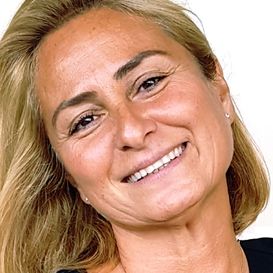
Editorial
by Zeynep Sarılar

Country Focus: Austria
One-stop shop accelerates Research facilitator industrial R&D

SparxSystems Central Europe
Innovation sparks – with an x!

ITEA Success story: BENEFIT
Advancing evidence-based medicine for better patient outcome
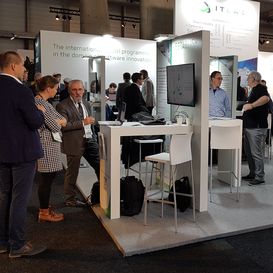
ITEA at Smart City Expo 2019
Bringing together Smart City Challenges and Smart City Solutions
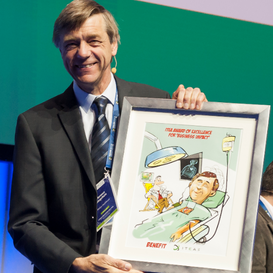
Community Talk with Herman Stegehuis
Harvesting the fruits of one’s labours

End user happiness: Panacea Gaming Platform
Setting a world standard in gaming for special populations

ITEA Success Story: ACCELERATE
A go-to-market acceleration platform for ICT
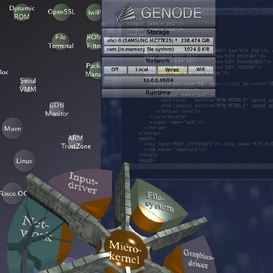
SME in the spotlight: Genode labs
Where fantasy creates a new reality

Cyber Security & Cloud Expo 2020
Continuing to focus on customer orientation

Modelling & Simulation
A vision of standards and state of play


